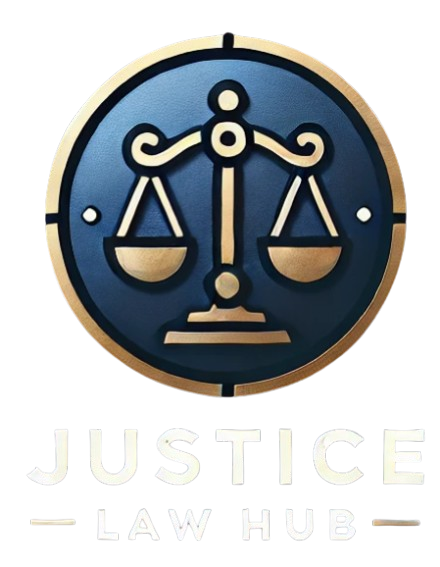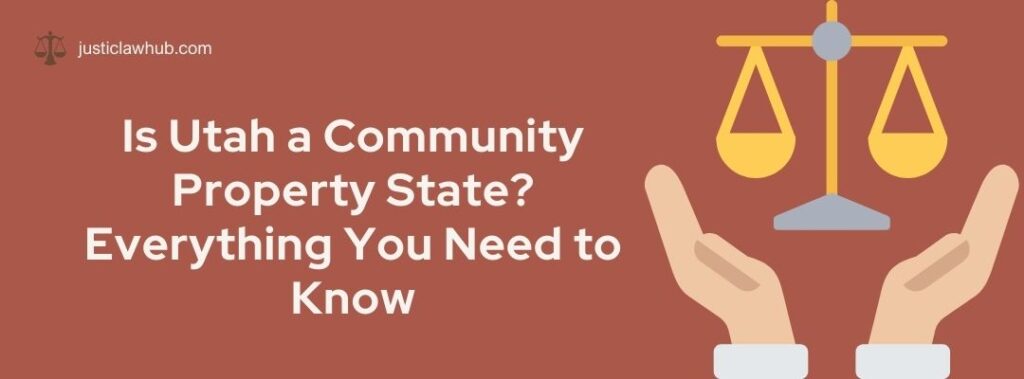When couples get married, understanding how property is divided during a divorce or the death of a spouse becomes essential. One common question that arises is: “Is Utah a community property state?” The answer affects how marital property is handled in the state.
In this guide, we’ll explore Utah’s approach to marital property, how it compares to community property states, and the impact of Utah state divorce laws. We’ll also discuss what other states do and clarify some common misconceptions, like whether New York is a community property state.
Understanding Community Property States
Before diving into Utah’s specific laws, it’s important to understand what community property states are. In community property states, almost all property acquired during the marriage is considered jointly owned by both spouses.
This means that, regardless of whose name is on the title or who earned the money, both spouses have equal ownership. Typically, these states divide marital property 50/50 upon divorce.
Currently, the nine community property states in the U.S. are:
- Arizona
- California
- Idaho
- Louisiana
- Nevada
- New Mexico
- Texas
- Washington
- Wisconsin
Knowing this list helps to answer common questions like “What states are community property states?”
What About Utah?
Now, let’s address the main question: Is Utah a community property state?
The answer is no. Utah is not a community property state; it is considered an equitable distribution state, which falls under the broader category of marital property states.
In an equitable distribution state like Utah, property acquired during the marriage is divided fairly, but not necessarily equally. The courts consider several factors to determine what is fair.
How Utah Handles Marital Property
Under Utah state divorce laws, marital property includes assets and debts acquired during the marriage. This can include:
- Homes and real estate
- Bank accounts and savings
- Retirement accounts
- Vehicles
- Investments
The key difference between Utah and a community property state is that in Utah, courts have discretion to divide property in a way that considers fairness rather than automatic 50/50 division.
Factors Utah courts may consider include:
- The length of the marriage
- The financial situation of each spouse
- Contributions to the marriage, including homemaking
- Any fault or misconduct that affects the financial situation
This means that in Utah, one spouse might receive a larger share of certain assets if it’s deemed fair, especially if one spouse has significantly higher financial contributions.
Related Post: Do You Go to Jail for Misdemeanours? A Complete Guide
Community Property vs. Equitable Distribution
It’s helpful to compare common property states and equitable distribution states.
In community property states:
- All property acquired during marriage is usually split 50/50
- Debts are also shared equally
- The system is more rigid and predictable
In equitable distribution states like Utah:
- Property is divided fairly, but not necessarily equally
- Courts have discretion to consider unique circumstances
- Debts are divided based on fairness
Understanding this difference is essential for couples moving between states or those with property in multiple states.
Examples of How Property Might Be Divided in Utah
Let’s look at a practical example. Imagine a couple in Utah has the following assets:
- A family home worth $300,000
- A car worth $20,000
- Savings of $50,000
If one spouse earned significantly more or contributed more to the marriage, a Utah court might award the home to one spouse and offset the difference with cash or other assets.
In a community property state, that same couple would almost certainly split everything 50/50, regardless of who earned more.
Is NY a Community Property State?
Many people also ask: “Is NY a community property state?”
The answer is no. New York, like Utah, follows equitable distribution laws. Property acquired during marriage is considered marital property, but division is based on fairness rather than automatic equality.
This is a common misconception because some people assume all states divide property the same way, but the reality is that only nine states follow strict community property rules.
Why This Matters for Married Couples
Understanding whether a state is a community property state or a marital property state is crucial for several reasons:
- Divorce planning – Knowing how property is divided helps couples plan financially and legally.
- Estate planning – Inheritance and estate laws may interact with marital property rules.
- Financial decisions during marriage – Understanding ownership can affect savings, investments, and purchases.
For couples in Utah, knowing that the state follows equitable distribution rather than community property laws can prevent misunderstandings if the marriage ends.
Tips for Protecting Your Property in Utah
Even though Utah is not a community property state, there are steps couples can take to protect assets:
- Prenuptial agreements – Clearly define what property is separate and what is marital.
- Postnuptial agreements – Similar to a prenup, but created after marriage.
- Keep separate accounts – Maintain separate accounts for inheritance or gifts to ensure they are considered separate property.
- Document contributions – Keep records of financial and non-financial contributions to help courts in equitable distribution.
These steps can simplify property division and reduce conflicts if divorce becomes necessary.
How Utah State Divorce Laws Affect Property
Utah state divorce laws are designed to ensure a fair division of property, considering the unique circumstances of each marriage. The laws give judges broad discretion, which can be both a benefit and a challenge.
Judges in Utah may look at:
- The economic circumstances of each spouse
- The length of the marriage
- Contributions to marital property
- Custody arrangements for children
- Any misconduct, such as hiding assets
This approach differs significantly from rigid community property states, where judges have less discretion and division is largely automatic.
Comparing Utah to Other States
When answering “What states are community property states?”, it’s clear that Utah is not among them. Instead, Utah is part of the larger group of marital property states that use equitable distribution.
Here’s a quick comparison:
| Feature | Community Property States | Utah (Equitable Distribution) |
|---|---|---|
| Division of assets | 50/50 | Fair and equitable, may not be equal |
| Division of debts | Shared equally | Divided based on fairness |
| Court discretion | Limited | Broad discretion |
| Predictability | High | Lower, case-by-case |
This comparison highlights why it’s important for couples in Utah to plan ahead.
Related Post: Ashley Wells Cox: Championing Justice and Community Leadership
Key Takeaways
- Utah is not a community property state.
- Utah follows equitable distribution principles for dividing marital property.
- Community property states divide property 50/50 automatically, while Utah courts consider fairness.
- Understanding Utah state divorce laws can help couples make informed financial and legal decisions.
- Other states like New York are also not community property states.
Final Thoughts
If you’re married in Utah or considering marriage, it’s important to understand how your property will be treated. While Utah is not a common property state, the equitable distribution system is designed to ensure a fair outcome.
For those moving between states, owning property in multiple locations, or dealing with complex financial situations, consulting an attorney familiar with marital property states and community property states can save significant stress and money.
Knowing the difference between Utah and community property states, and understanding that New York is not a community property state, allows couples to make better decisions about marriage, property, and finances.
In short: Utah values fairness over automatic equality, and being informed is the best way to protect yourself and your family.



